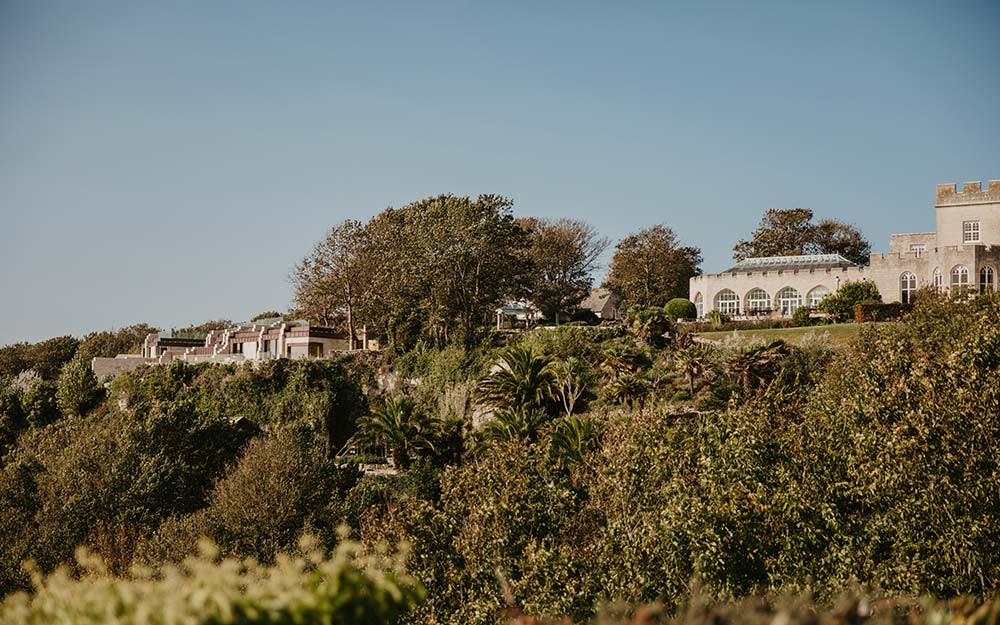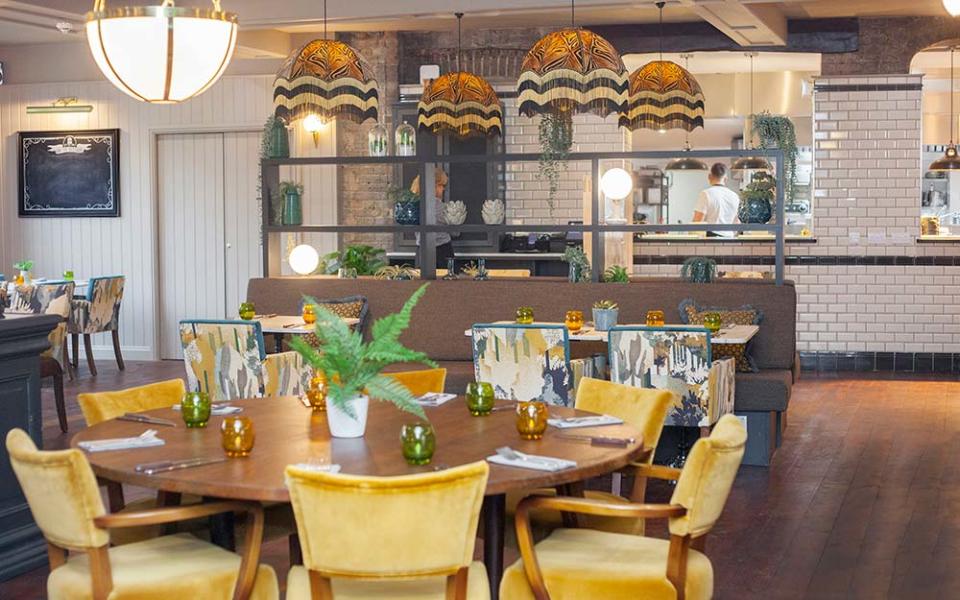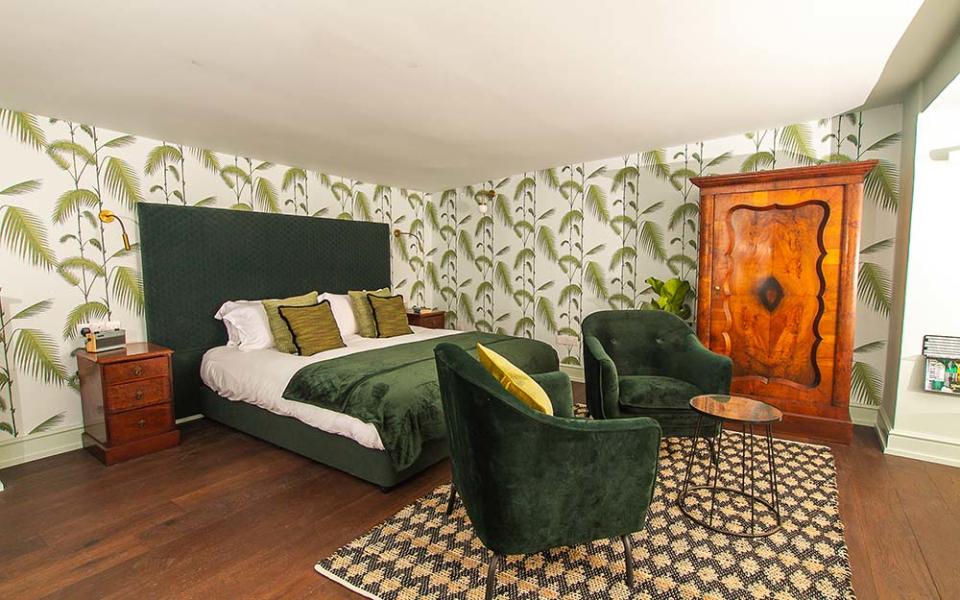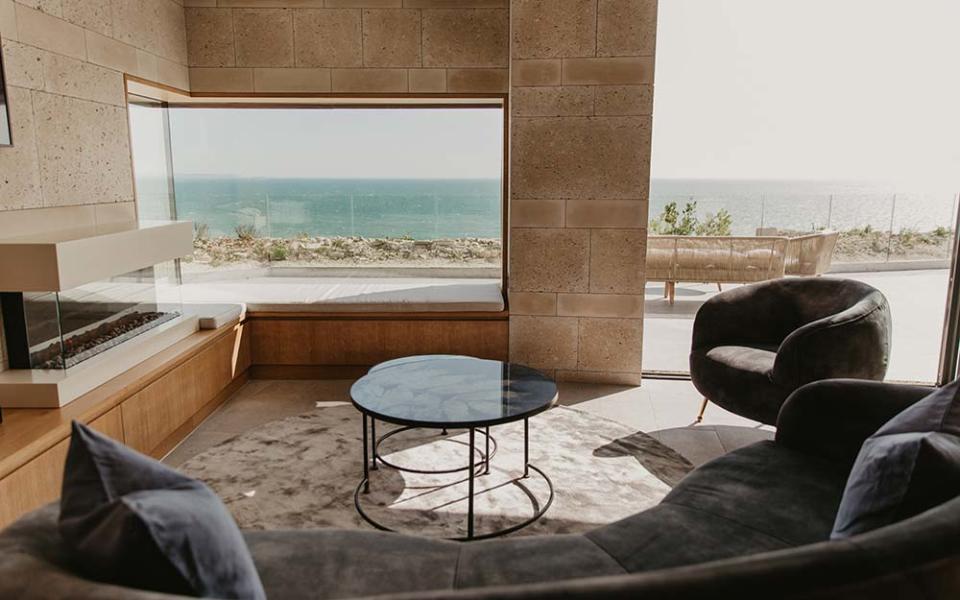Exclusive: Inside Dorset's bold new places to stay, a combination of old and new

Through sliding glass doors, as beams of sunrise lit up a choppy English Channel, it was the greyscale sweep of Church Ope Cove 200ft below where I’d been sleeping that held my attention. A secluded strand to pass an idle Saturday morning.
I was so eager to reach the pebbles on the Isle of Portland’s eastern shore that I shrugged off a “no admittance” sign on the wooden gate, slipped under the cross-brace and made my way down, catching on brambles and stumbling on loose stones.
Reaching the coast, I looked back towards the hillside to see Clifftops, where I’d spent the night. This ambitious £4.5 million project has seen five ultra-modern lodges built into the cliff ’s edge using the white-grey limestone the island is famous for.
A breeze fluttered the pages of the book I’d brought to pass the morning: The Mayor of Casterbridge by Dorset’s own Thomas Hardy. I’d picked up the second-hand paperback following a stay at The King’s Arms earlier that week (the Georgian coaching inn is where the author is believed to have written the novel). It’s a striking period building (and was even when in disrepair), with Doric columns at the porch and two-floor bow windows at the front. I visited on reopening night, four years since the beginning of a £5 million renovation to bring life back to a faded relic.
With these two high-profile openings – both began welcoming guests this month – Dorset finds itself back in the spotlight, each balancing the weight of the county’s storied past with the 21st-century traveller’s demand for originality.

The King’s Arms’s history is impressive. It played host to Queen Victoria, Edward VII, Admiral Nelson, in 1889 became the first building in Dorchester to have electric light, and 10 years later was the first in town with a private telephone connection. In 1964, months after releasing their debut album, a group of twentysomethings waved to fans from the first floor. That band? The Rolling Stones.
I last strode in as a teenager, more than 10 years ago, hoping for lunch with a pint. By that point it already felt decades out of date, with its naff red carpets and a menu devoid of the flourishing west Dorset food scene recently brought to wider attention by Hugh Fearnley-Whittingstall’s River Cottage television series. I left without ordering.
Entering receivership in 2015 was an ignominious state for the landmark building. Then in stepped Stay Original Co. Arduous bureaucracy – and a pandemic – have proved testing. The firm bought, renovated and opened another hotel, The Grosvenor Arms in Shaftesbury, in the time it took for the first guests to arrive in Dorchester.
The steady refurbishment was dogged by a determination to avoid – and repair – the mistakes of previous owners, who spoilt much of the building’s character. Laminate was ripped up to reveal the geometric pattern of encaustic Victorian tiles; plasterboard walls were removed to find red brick that now sits exposed around a semi-private dining nook; original oak columns, chipped and nicked over the centuries, have been strengthened and given a sheen.
The 20 rooms (a number that will rise to 34 by summer 2021) have been styled by Ali Guttridge, of Bristol-based Origin Interiors. The look is a glorious medley of styles, some featuring Scandi-inspired oak desks, or midcentury mirrors, or floral wallpaper. Vintage and “upcycled” embellishments – such as an Edwardian room divider turned headboard – filter throughout.

Guttridge’s flair extends to the ground floor, where a jumble of chairs including some upholstered in Jean Paul Gaultier fabric sit within dark olive panelled walls, surrounding a bar made from deep green natural granite.
On display is a framed menu, no date but before 1971’s decimalisation, boasting of steamed chicken and boiled potatoes. Now menus have a “modern British” foundation enlivened by European, North African and Middle Eastern panache.
Back over the causeway on Portland, Clifftops is bang up to date, with no literary heritage to fall on. Each lodge is constructed from local stone extracted just minutes away, clad with copper that has turned a shade close to burgundy in the salty seaside air. Plants were chosen with the maritime environment in mind – Tamarix tetrandra, evergreen Griselinia littoralis, low-growing thymes – and help minimise any disturbance, aesthetically, to the cliffs. As you would expect from the location, the uninterrupted sea views are superlative.
But it’s the interiors that confirm Clifftops as the isle’s most on-trend place to stay. Natural textures dominate, whether it’s the unadorned stone walls buffed smooth or oak panelling adding warmth.
In Ope, the biggest of the quintet, a crescent sofa upholstered in slate-grey velvet faces through windows to the waves beyond; I lost hours lying there (the curved shape is meant to mirror the cove below). The circular nesting coffee tables, topped with deep-blue glass in an iron frame, seem to reflect the deep water nearby. On the top of a concrete dining table is a ceramic bowl with almost a cosmic look; I’m told it’s a nod to the clear night skies you can see from this perch. Outside on the terrace is space to sit and eat, with a built-in gas-fired grill and hob.

There are similarities – wonderfully soft mattresses manufactured in north-west England, bedclothes and pillows by The White Company, for instance – but each space is inspired by an individual concept. Sea and sky inform the design of Blue, in which you’ll find many shades of the namesake colour, while in SIlva, the Latin word for forest or woodland, goes heavy on oak.
And throughout there are the luxe elements: underfloor heating, enormous smart TVs, Bose Bluetooth speakers. My phone signal vanished once inside; thankfully the Wi-Fi was fast. A B&B option was supposed to be available but coronavirus has halted plans, so for now it’s self-catering only; the kitchens should have all the equipment you’d need.
However, the most mesmerising details are sections of the stone walls – approximately 145 million years old – that are flecked with translucent strands where sea creatures were captured, or pockmarked with holes where shells and fossils once lay. Even in Dorset’s bold, new seaside bolt-holes, the Jurassic Coast cannot be ignored.
On the beach I read under the sun. Hardy wrote, in The Mayor of Casterbridge, that “happiness was but the occasional episode”. Perhaps that’s true. But with the late-summer warmth on my skin, it seemed both these new offerings would be catalysts for much more than infrequent happiness in Dorset.
Two-bedroom lodges at Clifftops cost from £630 for two nights (01305820918; thepennestate.co.uk/clifftops).
Double rooms at The King’s Arms cost from £95 (01305 238238; thekingsarmsdorchester.com)


